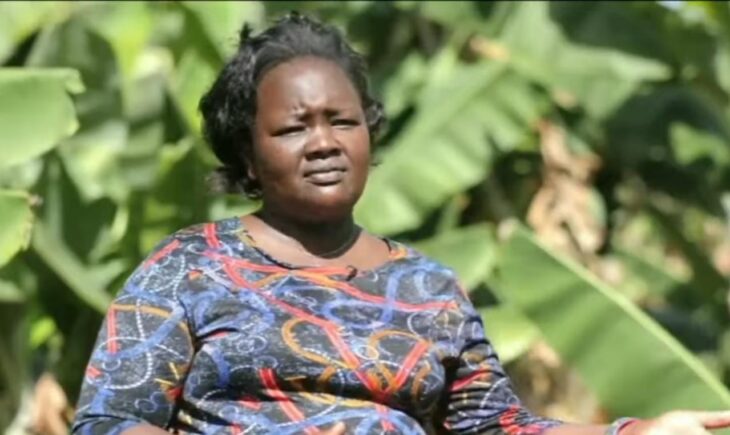WEST POKOT,Kenya, Mar, 15 – The month of March honors the special place women hold in society. In west Pokot county, Caroline Menach,embodies resilience,hard work and no doubt, a ‘can do’ attitude as she strives to empower women from her community to pursue endevours in the lucrative farming and agribusiness sector.
It is an initiative she says will help address the food security issue that has plagued parts of the county while enabling women to create a livelihood for themselves.
In the midst of the Pokot hinterlands lies a fertile piece of land. The greenery of this banana plantation sits in an area that has recently suffered due to the effects of climate change
“West Pokot is a relatively dry county. 20% of it is highland, 80% is dry, majorly on the lowland. And you find that right now even in the highland region there is a lot of deforestation,” said Caroline Menach.
This has however not hindered Menach from pursuing her dreams of enabling the region to become food secure.
“In the pokot community, women are left with lots of tasks. Taking care of the children, cattle, goats, and everything at home. They are also expected to fend for their families. If they do not have that ability to have as many goats and cattle, they are forced to go to an extent of invading the forests to get firewood to sell or make charcoal,” she said.
Menach has become a champion of preserving the forests and works towards increasing forest cover, while giving other women in the community the education needed for them to adopt environmentally friendly economic activities that yield results.
“Through this destruction of the forest, erosion will come in. So there is need for our women to be told there is an alternative which is embracing planting of trees. In pokot we have a good environment where Mango trees can thrive, bananas and papaya. If they can plant these trees they can fruits for long that will also serve them well,”
“Women are at the centre of climate change. If you assess the gender roles that are associated with women are those that depend mostly on nature and natural resources and the ecosystem that the environment is able to provide. That brought on the aspect of how do we support women to adapt to climate change and support the climate mitigation measures and get resilience to climate related shocks,” said Lavender Odere. Technical Specialist, World Vision.
“The movement of animals from one place to another should stop. Because the land is becoming small. and therefore we need to embrace zero grazing or keeping of few animals which are more productive to the farms,” said Menach.
As part of the Imara program, supported by World Vision Kenya, women Like Menach are said to learn skills that they pass over to other women in their communities becoming a he source of empowerment.
“They are the heroes that we are seeing transforming communities through the activities that they are doing. With the multiple streams of income coming in the women are able to provide for their families regardless of the weather patterns, and also they support the households,” said Ondere.
Menach says that if the women in the community work with their husbands in tilling the land and adopting a different approach to farming, then soon enough what has been the norm over the ages of cattle rustling and blood shedding will be a thing of the past.
Want to send us a story? Contact Shahidi News Tel: +254115512797 (Mobile & WhatsApp)


